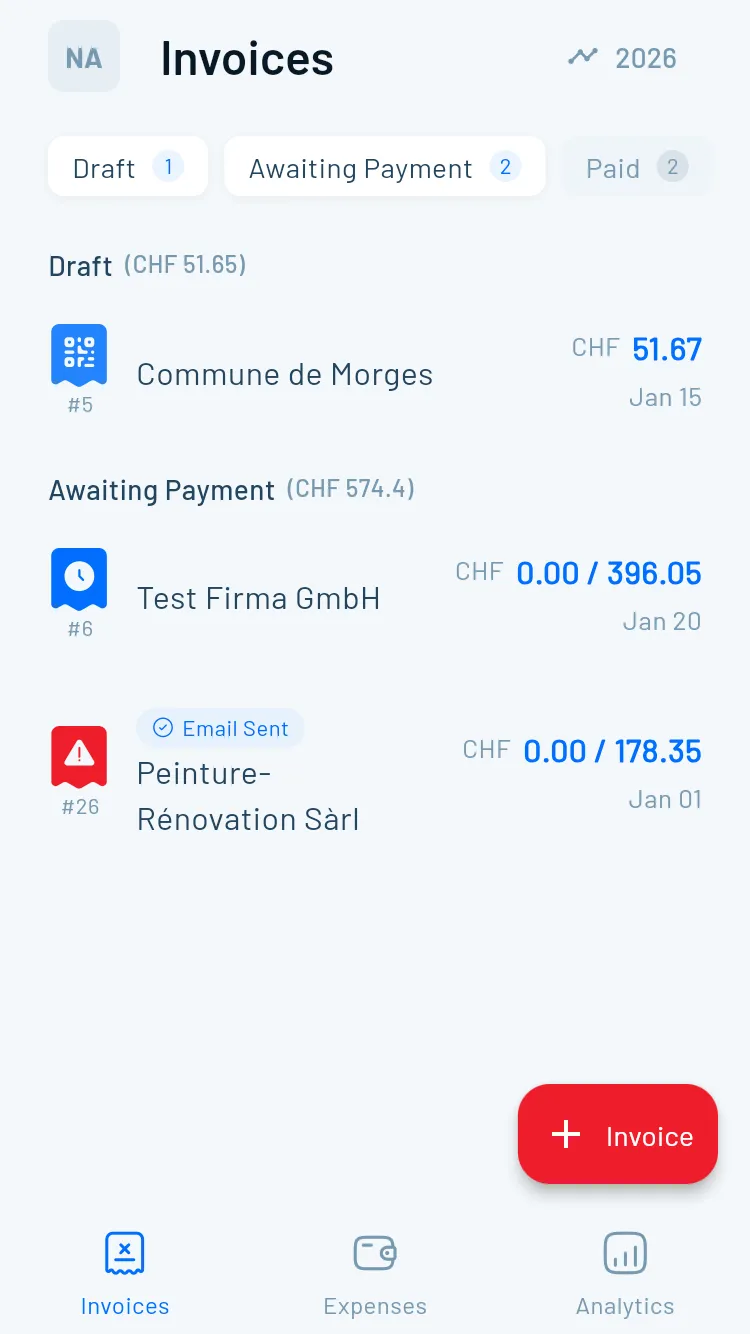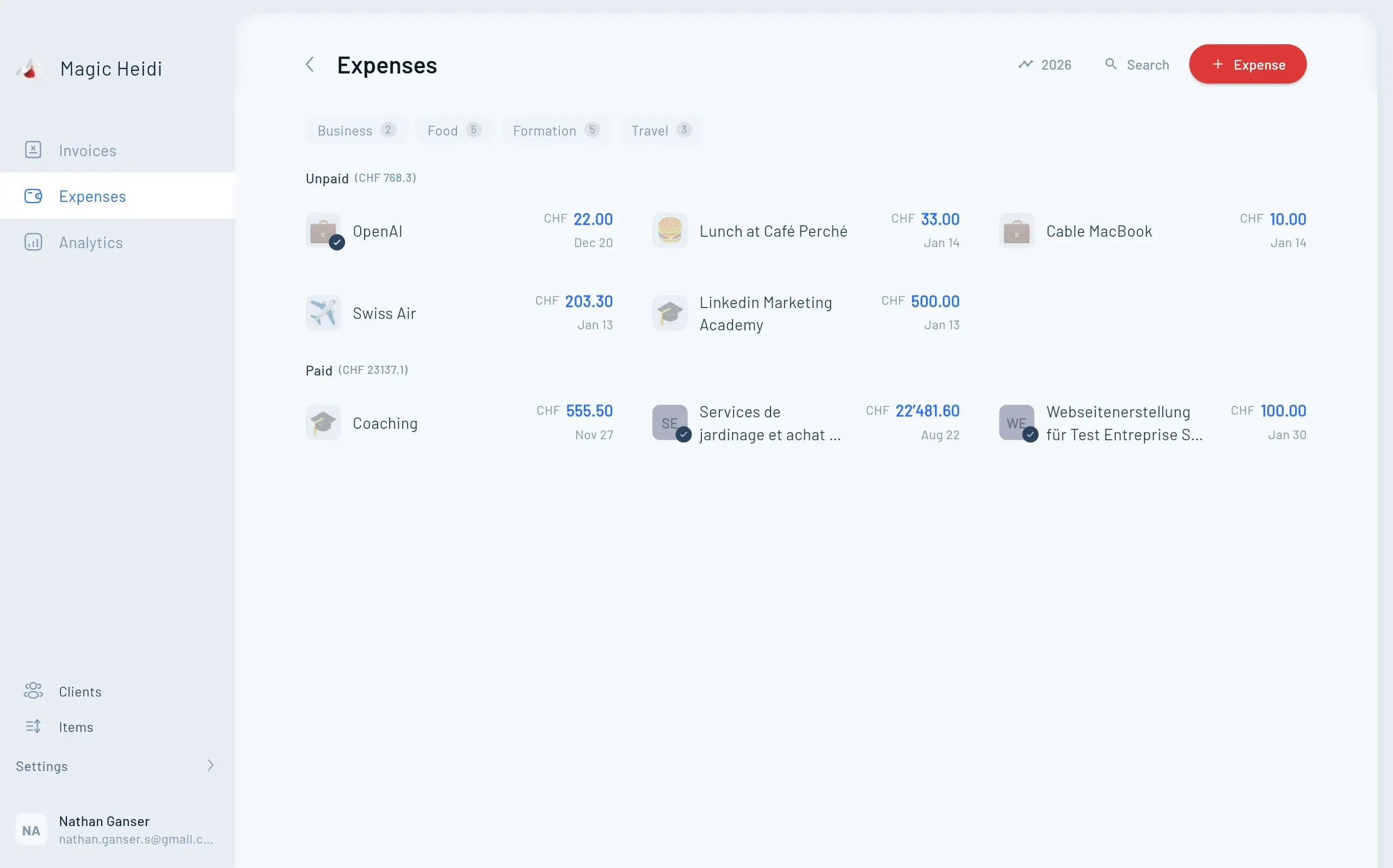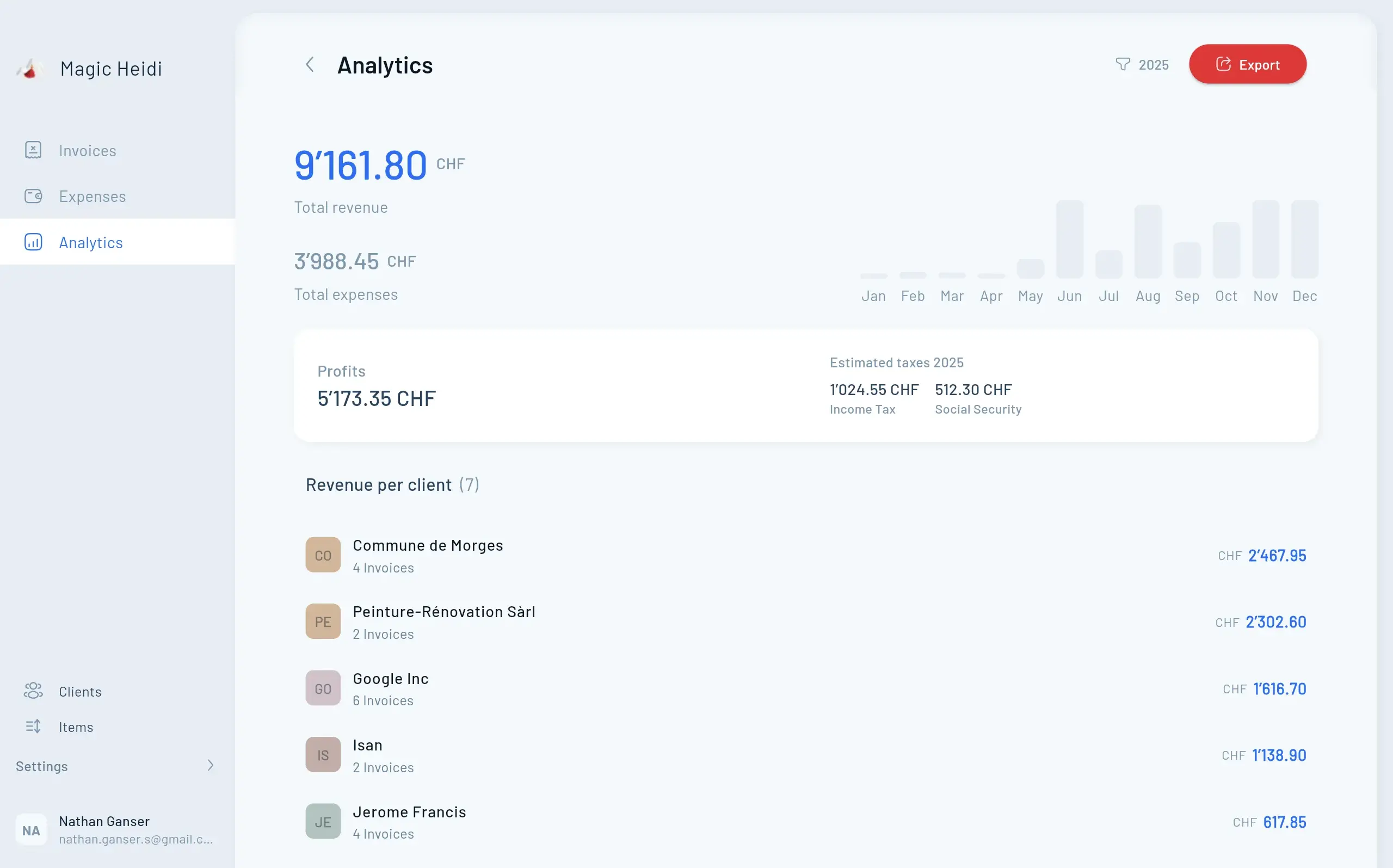Why Register Before CHF 100,000
Voluntary registration can provide strategic advantages for growing freelancers
- Professional credibility: A MWST number signals you run a legitimate, established business
- Input VAT deduction: Reclaim VAT on business expenses—office supplies, equipment, software, professional services
- Competitive positioning: Some clients specifically seek VAT-registered freelancers
- Cash savings: For businesses with significant expenses, deductions can add up to thousands of francs annually




